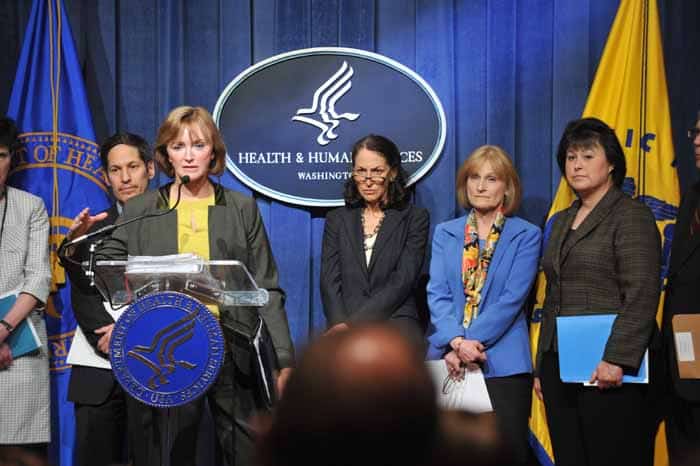Obamacare subsidies are under fire in Congress, with some House Republicans questioning how the Obama administration funded them.
Even as health insurers lobby the Trump administration to maintain billions of dollars in cost-sharing reductions for low-income people purchasing coverage under the federal health care law, they find themselves holding the bag as uncertainty clouds the industry’s future in the short term.
The majority of the uncertainty surrounds the status of cost-sharing reductions (CSRs), which allow companies to cover approximately seven million people by lowering their deductibles and co-payments. New Medicare administrator Seema Verma, said her group drove home that their “most pressing concern is the instability in the individual market created by the uncertainty of funding.”
Many insurers are nervous as deadlines for setting next year’s rates approach. Some have even abandoned the federal marketplace entirely. The subsidies are a contentious issue in Congress, with some House Republicans opposing how the Obama administration funded them. When the previous administration won a court case, which is now being appealed, that supported the framework underlying the payments, more bad blood ensued.
While White House officials say Trump has yet to make a final decision on withholding insurance company subsidies next year, one official says the president is “leaning toward ending the subsidies.” During an interview with The Wall Street Journal last week, Trump threatened to withhold CSR payments in order to force Democrats to negotiate the law’s future with his administration.
According to Marilyn Tavenner, CEO of America’s Health Insurance Plans, ending the CSR subsidies would be detrimental to the entire system.
“Without funding, millions of Americans who buy their own plan will be harmed,” Tavenner said. “Many plans will likely drop out of the market. Premiums will go up sharply — nearly 20 percent — across the market.”
Many insurers, for their part, say they’re considering scenarios that could result in 30% rate increases. Subsidies were paid out totaling $7 billion last year. While a court of law ruled that the payments authorized by the executive branch were unconstitutional, that decision has yet to be implemented, and the case is being appealed. The date for that appeal is set for May 22.
Another point of contention revolves around the administration’s hints that it may choose not to impose the tax penalties that people now face under the ACA if they refuse to enroll in coverage. If the Trump administration decides not to enforce the mandate, a portion of the healthier population may forego insurance entirely, resulting in a larger pool of sicker patients.
The current mandate is still in effect, according to the Internal Revenue Service, but no one knows if fees have been collected.
Humana announced this year that it would cease selling policies in 2018, and Iowa’s Blue Cross plan and Aetna announced that they would exit the state marketplace the following year.
Some insurers are less concerned about the state of the market, and many of those who remain say their plans have turned the corner.
Earlier this month, Standard & Poor’s published a report that directly contradicted the Trump administration’s claim that the federal ACA marketplace is “in a death spiral.”


